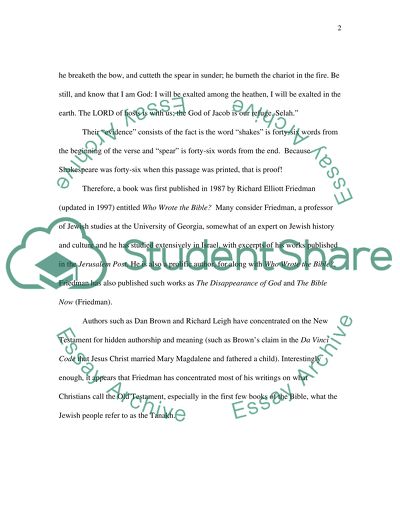Cite this document
(“Who Wrote the Bible Dissertation Example | Topics and Well Written Essays - 3000 words”, n.d.)
Who Wrote the Bible Dissertation Example | Topics and Well Written Essays - 3000 words. Retrieved from https://studentshare.org/religion-and-theology/1402858-who-wrote-the-bible
Who Wrote the Bible Dissertation Example | Topics and Well Written Essays - 3000 words. Retrieved from https://studentshare.org/religion-and-theology/1402858-who-wrote-the-bible
(Who Wrote the Bible Dissertation Example | Topics and Well Written Essays - 3000 Words)
Who Wrote the Bible Dissertation Example | Topics and Well Written Essays - 3000 Words. https://studentshare.org/religion-and-theology/1402858-who-wrote-the-bible.
Who Wrote the Bible Dissertation Example | Topics and Well Written Essays - 3000 Words. https://studentshare.org/religion-and-theology/1402858-who-wrote-the-bible.
“Who Wrote the Bible Dissertation Example | Topics and Well Written Essays - 3000 Words”, n.d. https://studentshare.org/religion-and-theology/1402858-who-wrote-the-bible.


